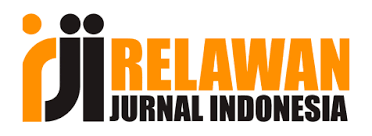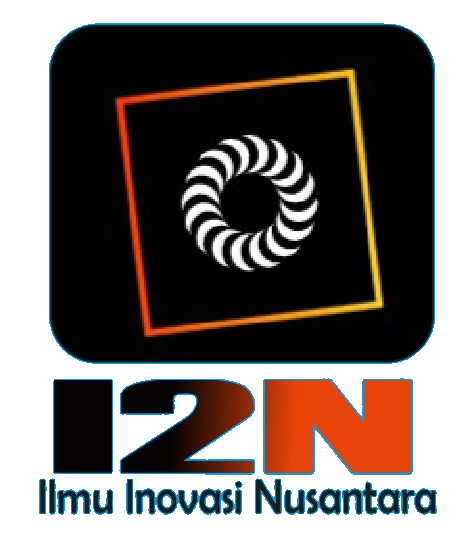Effects of Exercise Intervention on Gross Motor and Social Skills in Children with Autism: A Systematic Review
DOI:
https://doi.org/10.58557/(ijeh).v5i4.366Keywords:
Children With Autism, Executive Functioning, Gross Motor Movements, Motor Intervention, Social SkillsAbstract
With the increasing prevalence of autism diagnoses worldwide, there is a growing demand for interventions that support the holistic development of children with autism, particularly in gross motor function and social interaction. While exercise-based interventions have shown promise, existing research presents inconsistent findings. This study aims to systematically review the literature to clarify the potential effects of exercise interventions on the physiological health and social skills of children with autism. The ultimate goal is to derive universal conclusions and inform the development of tailored physical activity curricula that meet the unique needs of autistic children, providing a solid scientific foundation for inclusive physical education practices. A comprehensive literature review was conducted using subject-based searches across multiple databases, including PubMed, CNKI, Wikipedia, Web of Science, and Medline, covering publications from January 2006 to January 2024. After rigorous screening, sixteen randomized controlled trials (RCTs) focusing on exercise interventions for children with autism were selected for analysis. The systematic review revealed that exercise interventions significantly enhance gross motor skills and improve social interaction among children with autism. Additionally, these interventions contribute to improved executive functioning and are effective in reducing anxiety and feelings of low self-worth. Exercise interventions play a critical role in fostering the overall development of children with autism. They not only improve motor proficiency and social engagement but also boost self-confidence and alleviate psychological challenges. These findings underscore the importance of integrating structured physical activity programs into the education and therapy of children with autism to support their physical, emotional, and social well-being
References
Arslan, E., Ince, G., & Akyüz, M. (2020). Effects of a 12-week structured circuit exercise program on physical fitness levels of children with autism spectrum condition and typically developing children. International Journal of Developmental Disabilities, 68(4), 500–510. https://doi.org/10.1080/20473869.2020.1819943
Cai, K., Yu, Q., Herold, F., Liu, Z., Wang, J., Zhu, L., Xiong, X., Chen, A., Müller, P., Kramer, A. F., Müller, N. G., & Zou, L. (2020). Mini-basketball training program improves social communication and white matter integrity in children with autism. Brain Sciences, 10(11), Article 803. https://doi.org/10.3390/brainsci10110803
Cai, X., Xu, L., Zhang, Y., et al. (2023). Meta-analysis of the facilitating effect of exercise intervention on social competence of children with autism spectrum disorders. In Abstracts of the Thirteenth National Sports Science Conference—Thematic Presentations (Physical Fitness and Health Division) (p. 3). Chinese Society of Sports Science. https://doi.org/10.26914/c.cnkihy.2023.065458
Cao, H., & Wang, J. (2014). The absence and return of sports rights of students with disabilities. Journal of Shanghai Institute of Physical Education, 38(4), 53–57, 62.
Castaño, P. R. L., Suárez, D. P. M., González, E. R., et al. (2023). Effects of physical exercise on gross motor skills in children with autism spectrum disorder. Journal of Autism and Developmental Disorders. Advance online publication. https://doi.org/10.1007/s10803-023-06031-5
Chen, H., Liang, Q., Wang, B., Liu, H., Dong, G., & Li, K. (2024). Sports game intervention aids executive function enhancement in children with autism: An fNIRS study. Neuroscience Letters, 822, Article 137647. https://doi.org/10.1016/j.neulet.2024.137647
Chen, S.-S., Bai, X.-J., & Zhang, R.-S. (2011). Symptoms, diagnosis, and intervention in autism spectrum disorders. Advances in Psychological Science, 19(1), 60–72.
Diamond, A. (2000). Close interrelation of motor development and cognitive development and of the cerebellum and prefrontal cortex. Child Development, 71(1), 44–56. https://doi.org/10.1111/1467-8624.00117
Diamond, A., & Lee, K. (2011). Interventions shown to aid executive function development in children 4 to 12 years old. Science, 333(6045), 959–964. https://doi.org/10.1126/science.1204529
Doebel, S. (2020). Rethinking executive function and its development. Perspectives on Psychological Science, 15(4), 942–956. https://doi.org/10.1177/1745691620904771
Dong, L., Bu, J., Shen, B., et al. (2021). Effects of 10-week exercise intervention on basic motor skills and social interaction ability of children with autism. Chinese Journal of Sports Medicine, 40(3), 171–180. https://doi.org/10.16038/j.1000-6710.2021.03.002
Haghighi, A. H., Broughani, S., Askari, R., et al. (2023). Combined physical training strategies improve physical fitness, behavior, and social skills of autistic children. Journal of Autism and Developmental Disorders, 53, 4271–4279. https://doi.org/10.1007/s10803-022-05731-8
Haghighi, A. H., Broughani, S., Askari, R., et al. (2023). Combined physical training strategies improve physical fitness, behavior, and social skills of autistic children. Journal of Autism and Developmental Disorders, 53, 4271–4279. https://doi.org/10.1007/s10803-022-05731-8
Hatipoğlu Özcan, G., Özer, D. F., & Pınar, S. (2024). Effects of motor intervention program on academic skills, motor skills and social skills in children with autism spectrum disorder. Journal of Autism and Developmental Disorders. Advance online publication. https://doi.org/10.1007/s10803-024-06384-5
Homayounnia Firouzjah, M., Majidi Yaeichi, N., & Hematinia, R. (2024). The effectiveness of sensory-motor integration exercises on social skills and motor performance in children with autism. Journal of Autism and Developmental Disorders. Advance online publication. https://doi.org/10.1007/s10803-024-06325-2
Huang, X. (2023). Research on the effect of adaptive physical activity on gross motor development of children with autism [Master’s thesis, Three Gorges University]. CNKI. https://doi.org/10.27270/d.cnki.gsxau.2023.000081
Ketcheson, L., Hauck, J., & Ulrich, D. (2017). The effects of an early motor skill intervention on motor skills, levels of physical activity, and socialization in young children with autism spectrum disorder: A pilot study. Autism, 21(4), 481–492. https://doi.org/10.1177/1362361316650611
Lee, C., & Lee, Y.-Y. (2021). Reflections on conducting physical education programs for exceptional students in colleges and universities under adaptive physical education. Youth Sports, (11), 100–101.
Levante, A., Martis, C., Antonioli, G., et al. (2023). The effect of sports activities on motor and social skills in autistic children and adolescents: A systematic narrative review. Current Developmental Disorders Reports, 10, 155–174. https://doi.org/10.1007/s40474-023-00277-5
Liang, X., Li, R., Wong, S. H. S., et al. (2021). The impact of exercise interventions concerning executive functions of children and adolescents with attention-deficit/hyperactive disorder: A systematic review and meta-analysis. International Journal of Behavioral Nutrition and Physical Activity, 18, Article 68. https://doi.org/10.1186/s12966-021-01135-6
Liu, T., Tongish, M., Li, Y., et al. (2023). Executive and motor function in children with autism spectrum disorder. Cognitive Processing, 24, 537–547. https://doi.org/10.1007/s10339-023-01156-y
Liu, Y. (2023). Analysis of the effect of exercise intervention on executive function of autistic children in China. In Abstracts Collection of the 13th National Sports Science Conference – Wall Communication (Sport Psychology Division) (II) (p. 2). Chinese Society of Sport Science. https://doi.org/10.26914/c.cnkihy.2023.080599
Marzouki, H., Soussi, B., Selmi, O., Hajji, Y., Marsigliante, S., Bouhlel, E., Muscella, A., Weiss, K., & Knechtle, B. (2022). Effects of aquatic training in children with autism spectrum disorder. Biology, 11(5), Article 657. https://doi.org/10.3390/biology11050657
Rafiei Milajerdi, H., Sheikh, M., Najafabadi, M. G., Saghaei, B., Naghdi, N., & Dewey, D. (2021). The effects of physical activity and exergaming on motor skills and executive functions in children with autism spectrum disorder. Games for Health Journal, 10(1), 33–42. https://doi.org/10.1089/g4h.2019.0180
Sansi, A., Nalbant, S., & Ozer, D. (2021). Effects of an inclusive physical activity program on the motor skills, social skills and attitudes of students with and without autism spectrum disorder. Journal of Autism and Developmental Disorders, 51, 2254–2270. https://doi.org/10.1007/s10803-020-04693-z
Sarabzadeh, M., Azari, B. B., & Helalizadeh, M. (2019). The effect of six weeks of Tai Chi Chuan training on the motor skills of children with autism spectrum disorder. Journal of Bodywork and Movement Therapies, 23(2), 284–290. https://doi.org/10.1016/j.jbmt.2019.01.007
Shaheen, S. (2014). How child's play impacts executive function–related behaviors. Applied Neuropsychology: Child, 3(3), 182–187. https://doi.org/10.1080/21622965.2013.839612
Tse, A. C. Y., Anderson, D. I., Liu, V. H. L., & Tsui, S. S. L. (2021). Improving executive function of children with autism spectrum disorder through cycling skill acquisition. Medicine & Science in Sports & Exercise, 53(7), 1417–1424. https://doi.org/10.1249/MSS.0000000000002609
Wang, T., Luan, Y., Zhang, Y., et al. (2024). An intervention study of light instrument rhythmic gymnastics on considerable muscle locomotor ability in children with ASD. Sports Science and Technology, 45(1), 10–12. https://doi.org/10.14038/j.cnki.tykj.2024.01.048
Wong, V. C., & Hui, S. L. (2008). Epidemiological study of autism spectrum disorder in China. Journal of Child Neurology, 23(1), 67–72. https://doi.org/10.1177/0883073807308702
Xing, Y. (2020). Effects of considerable muscle motor skill learning on basic motor skills in children with autism spectrum disorders. Journal of Capital Sports Institute, 32(1), 13–17. https://doi.org/10.14036/j.cnki.cn11-4513.2020.01.003
Yu, C. C. W., Wong, S. W. L., Lo, F. S. F., et al. (2018). Study protocol: A randomized controlled trial study on the effect of a game-based exercise training program on promoting physical fitness and mental health in children with autism spectrum disorder. BMC Psychiatry, 18, Article 56. https://doi.org/10.1186/s12888-018-1635-9
Zeidan, J., Fombonne, E., Scorah, J., Ibrahim, A., Durkin, M. S., Saxena, S., Yusuf, A., Shih, A., & Elsabbagh, M. (2022). Global prevalence of autism: A systematic review update. Autism Research, 15(5), 778–790. https://doi.org/10.1002/aur.2696
Zhang, C., & Li, N. (2023). A review of research on the effects of sports intervention on the physical and mental health of children with disabilities. In Proceedings of the 10th China Physical Training Science Conference (p. 4). China Wisdom Engineering Research Association. https://doi.org/10.26914/c.cnkihy.2023.064619.
Zhao, M., & Chen, S. (2018). The effects of structured physical activity program on social interaction and communication for children with autism. BioMed Research International, 2018, Article ID 1825046. https://doi.org/10.1155/2018/1825046
Downloads
Published
How to Cite
Issue
Section
License
Copyright (c) 2025 Jiawei Luo, Ziteng Wang, Yun Li

This work is licensed under a Creative Commons Attribution-ShareAlike 4.0 International License.














